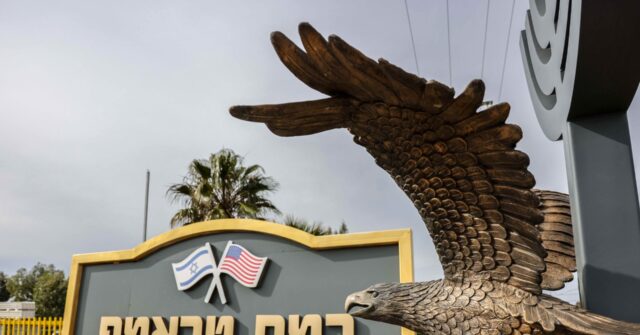Hezbollah’s actions following Donald Trump’s victory in the 2024 U.S. presidential election underscore the ongoing tensions between Israel and militant organizations in the region. The militant group launched rockets targeting Trump Heights, an Israeli town named after the former President in recognition of his administration’s support for Israeli sovereignty over the Golan Heights, an area captured from Syria during the 1967 conflict. While the attack reportedly resulted in no significant damage to the town itself, it did cause minor damage to a vehicle in Ra’anana due to debris from intercepted missiles. This incident serves as a reminder of the persistent threats posed by Hezbollah, which is supported by Iran and is aligned against Israel.
The Israeli government’s response to rocket alerts reflects the continued volatility of the situation. Residents are typically advised to seek shelter for a minimum of ten minutes after sirens, even when missile defense systems like the Iron Dome have successfully intercepted incoming threats. This protocol highlights both the technological advancements in Israel’s missile defense as well as the very real risks associated with potential retaliatory attacks. The fact that some projectiles still fell and caused damage illustrates the dangers that ordinary citizens face in this high-stakes environment.
Trump’s administration held a particular significance in Israeli politics due to his vocal support for its sovereignty claims and his promise to bolster Israel’s defense strategies against threats from organizations like Hezbollah and Hamas. As President-elect, Trump has reiterated his commitment to stopping the war in Lebanon while empowering Israel to maintain its defense capabilities. Such positions have been crucial in shaping regional military strategies and diplomatic relations, particularly in the context of an increasingly hostile environment fueled by Iranian influence.
The prospect of ending conflict in the region opens the door to potentially transformative diplomatic developments in Trump’s new term. Analysts speculate that a resolution to ongoing tensions could facilitate the expansion of the Abraham Accords, which previously established normalized relations between Israel and several Arab nations. By extending these agreements to include countries like Saudi Arabia, the incoming administration could significantly alter the Middle Eastern diplomatic landscape. Trump’s assertive stance on foreign policy could set the stage for a unique opportunity for peace and collaboration in a historically contentious region.
The implications of Trump’s presidency are being closely monitored by political stakeholders in the Middle East, as his policies have the potential to reshape alliances and influence military engagements. His supporters, including figures in conservative media, have been vocal about the need for a proactive American foreign policy approach that prioritizes Israel’s security while addressing the underlying factors of regional instability. They argue that Trump’s administration should focus on leveraging the newfound relationships gained from the Abraham Accords to promote a broader peace initiative, thereby further isolating adversarial powers like Iran and Hezbollah.
In light of these developments, commentators continue to analyze the evolving dynamics of Israeli security and U.S. foreign policy under Trump’s leadership. The recent rocket attacks are part of a larger narrative of persistent conflict and the struggle for security in the region. Trump’s inaugural foreign policy goals will hinge on balancing the needs of Israel with regional diplomacy and security considerations. As the administration assembles strategies for its early days, the focus will likely be on how best to navigate the complex interactions between Iran-backed entities and the broader aspirations for peace in the Middle East.

